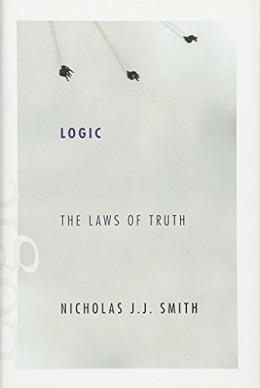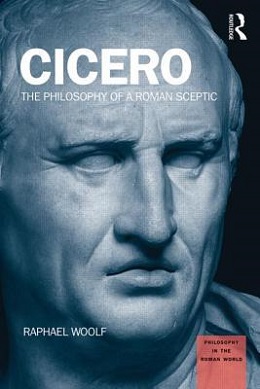
Epistemology is the branch of philosophy concerned with knowledge. Epistemologists study the nature, origin, and scope of knowledge, epistemic justification, the rationality of belief, and various related issues. Debates in contemporary epistemology are generally clustered around four core areas:
Skepticism, also spelled scepticism in British English, is a questioning attitude or doubt toward knowledge claims that are seen as mere belief or dogma. For example, if a person is skeptical about claims made by their government about an ongoing war then the person doubts that these claims are accurate. In such cases, skeptics normally recommend not disbelief but suspension of belief, i.e. maintaining a neutral attitude that neither affirms nor denies the claim. This attitude is often motivated by the impression that the available evidence is insufficient to support the claim. Formally, skepticism is a topic of interest in philosophy, particularly epistemology.
Critical thinking is the analysis of available facts, evidence, observations, and arguments in order to form a judgement by the application of rational, skeptical, and unbiased analyses and evaluation. The application of critical thinking includes self-directed, self-disciplined, self-monitored, and self-corrective habits of the mind, thus a critical thinker is a person who practices the skills of critical thinking or has been trained and educated in its disciplines. Philosopher Richard W. Paul said that the mind of a critical thinker engages the person's intellectual abilities and personality traits. Critical thinking presupposes assent to rigorous standards of excellence and mindful command of their use in effective communication and problem solving, and a commitment to overcome egocentrism and sociocentrism.

William Lane Craig is an American analytic philosopher, Christian apologist, author, and Wesleyan theologian who upholds the view of Molinism and neo-Apollinarianism. He is a professor of philosophy at Houston Christian University and at the Talbot School of Theology of Biola University. Craig has updated and defended the Kalam cosmological argument for the existence of God. He has also published work where he argues in favor of the historical plausibility of the resurrection of Jesus. His study of divine aseity and Platonism culminated with his book God Over All.

In its most common sense, methodology is the study of research methods. However, the term can also refer to the methods themselves or to the philosophical discussion of associated background assumptions. A method is a structured procedure for bringing about a certain goal, like acquiring knowledge or verifying knowledge claims. This normally involves various steps, like choosing a sample, collecting data from this sample, and interpreting the data. The study of methods concerns a detailed description and analysis of these processes. It includes evaluative aspects by comparing different methods. This way, it is assessed what advantages and disadvantages they have and for what research goals they may be used. These descriptions and evaluations depend on philosophical background assumptions. Examples are how to conceptualize the studied phenomena and what constitutes evidence for or against them. When understood in the widest sense, methodology also includes the discussion of these more abstract issues.
Moral nihilism is the meta-ethical view that nothing is morally right or morally wrong and that morality doesn't exist.

Robert Todd Carroll was an American author, philosopher and academic, best known for The Skeptic's Dictionary. He described himself as a naturalist, an atheist, a materialist, a metaphysical libertarian, and a positivist. In 2010 he was elected a fellow of the Committee for Skeptical Inquiry. He was a professor of philosophy at Sacramento City College from 1977 until his retirement in 2007.
Elliott R. Sober is Hans Reichenbach Professor and William F. Vilas Research Professor Emeritus in the Department of Philosophy at University of Wisconsin–Madison. Sober is noted for his work in philosophy of biology and general philosophy of science.

Barry Stroud was a Canadian philosopher and professor at the University of California, Berkeley. Known especially for his work on philosophical skepticism, he wrote about David Hume, Ludwig Wittgenstein, the metaphysics of color, and many other topics.
Tim Lewens is a professor in the history and philosophy of biology, medicine, and bioethics at the Department of History and Philosophy of Science at the University of Cambridge. Lewens is a Fellow of Clare College, where he serves as Director of Studies in Philosophy and he is a member of the academic staff and lecturer in the Department of History and Philosophy of Science (HPS).

Kylie Sturgess is a past President of the Atheist Foundation of Australia, an award-winning blogger, author and independent podcast host of The Token Skeptic Podcast. A Philosophy and Religious Education teacher with over ten years experience in education, Sturgess has lectured on teaching critical thinking, feminism, new media and anomalistic beliefs worldwide. She is a Member of the James Randi Educational Foundation (JREF) Education Advisory Panel and regularly writes editorial for numerous publications, and has spoken at The Amazing Meeting Las Vegas, Dragon*Con (US), QED Con (UK). She was a presenter and Master of Ceremonies for the 2010 Global Atheist Convention and returned to the role in 2012. Her most recent book The Scope of Skepticism was released in 2012. She is a presenter at Perth's community radio station RTRFM, and a winner at the 2018 CBAA Community Radio Awards in the category of Talks, with the show Talk the Talk In 2020 she was in the final eight in the Three-Minute Thesis (3MT) Asia-Pacific virtual showcase.

Michael Huemer is a professor of philosophy at the University of Colorado, Boulder. He has defended ethical intuitionism, direct realism, libertarianism, veganism, the repugnant conclusion, and philosophical anarchism.
Jennifer. Nagel is a Canadian philosopher at the University of Toronto. Her research focuses on epistemology, philosophy of mind, and metacognition. She has also written on 17th century (Western) philosophy, especially John Locke and René Descartes.

Logic: The Laws of Truth is a 2012 book by Nicholas J. Smith, in which the author provides an introduction to classical logic. It covers the formal tools and techniques of logic and their underlying rationales and broader philosophical significance. The book also presents various forms of proof: proof trees, major variants of natural deduction, axiomatic proofs, and sequent calculus. It also includes numerous logical exercises.

Cicero: The Philosophy of a Roman Sceptic is a 2015 book by Raphael Woolf, in which the author provides an introduction to Cicero’s role in shaping ancient philosophy.
Russell Marcus is a philosopher specializing in philosophy of mathematics and the pedagogy of philosophy. He is Chair of Philosophy at Hamilton College and president of the American Association of Philosophy Teachers.
Allan Hazlett is an American philosopher and Associate Professor of Philosophy at Washington University in St. Louis. He is known for his works on skepticism and ethics of belief.
A Luxury of the Understanding: On the Value of True Belief is a 2013 book by Allan Hazlett in which the author offers an analysis of the problem of the value of belief.
Graciela De Pierris is an American philosopher and Clarence Irving Lewis Professor of Philosophy at Stanford University. She is known for her works on early modern philosophy.
Sanford Goldberg is an American philosopher and Chester D. Tripp Professor in the Humanities at Northwestern University. He is known for his works on epistemology, philosophy of language, and philosophy of mind.









